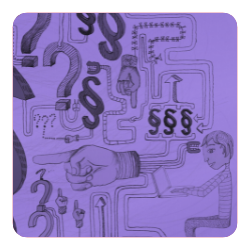Gatekeepers in focus: More security in the digital space
Whether eBay or Amazon, Facebook or TikTok, Google or Yahoo!: the digital space is steadily gaining in importance – and has been for many years. Online platforms have long since developed into booming markets. While in 2016, around 27 billion U.S. dollars were being generated worldwide via social media, by 2021 this figure had already risen to almost 49 billion. An estimated 18 percent of sales in Germany now takes place online – and the trend is upward. In order to better regulate the digital space, the EU Commission has now proposed a legislative package. But what is its goal? What is the specific content of the law? And what does it mean for users and market participants?
Stricter requirements: Gatekeepers in focus
Actually, this push is a regulatory package consisting of two separate pieces of EU legislation: The Digital Markets Act and the Digital Services Act. Here, the EU is taking aim at digital platforms, services and products. In particular, so-called gatekeepers, i.e., operators who, due to their special market position, have great power on the digital market and can have a lasting influence on consumer behaviour, are in focus of the draft. Thus, the obligations of online companies differ depending on their role, size and influence on the digital environment. The Digital Markets Act aims to create a level playing field for all digital companies in order to promote innovation and fair competition in the single market. The Digital Services Act, on the other hand, aims to increase consumer security in the digital space by better protecting their rights, creating transparency and enforcing stricter requirements for digital companies. But what does this mean in concrete terms?
More control and transparency
The legislator is paying particular attention to illegal online trading and the dissemination of illegal content and fake news. In the future, users will be able to make better decisions about what content they see, instead of leaving this decision to a non-transparent algorithm. The removal of false information and illegal content is also to be made much easier. All in all, users of digital services are to be given more control and more transparency. Although the law is still in draft status, the requirements will apply directly throughout the EU as soon as the ordinary legislative procedure has been completed.
Sensitization necessary - also in companies
The increased control of users and the handling of the higher promised transparency must be accompanied by sensitization measures. Because as one's own influence on the consumption and ultimately the dissemination of information is to increase, the responsibility also increases. In the future, companies will also have to support security in the digital space and prepare their employees and managers for the upcoming changes.































